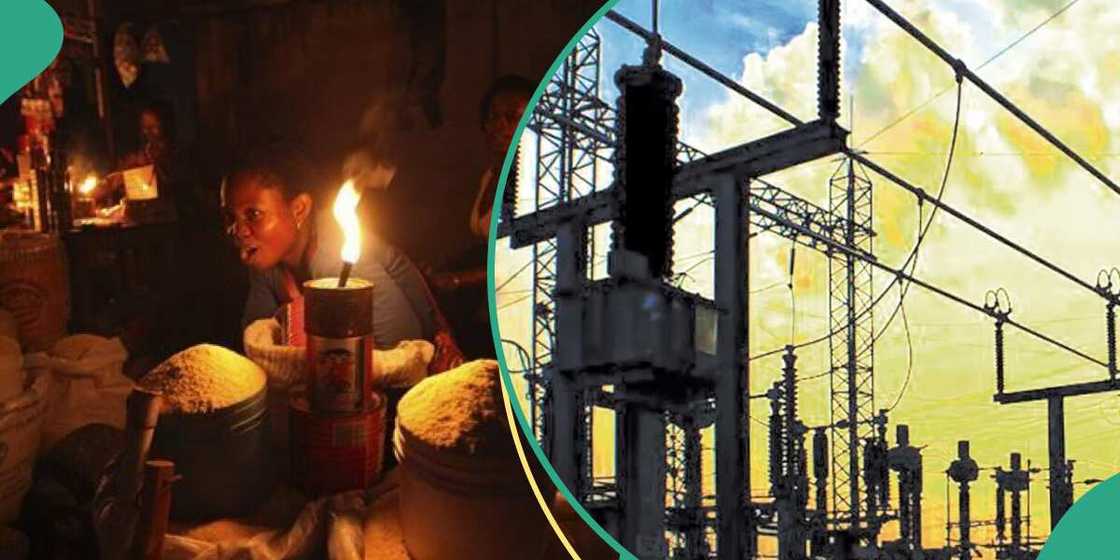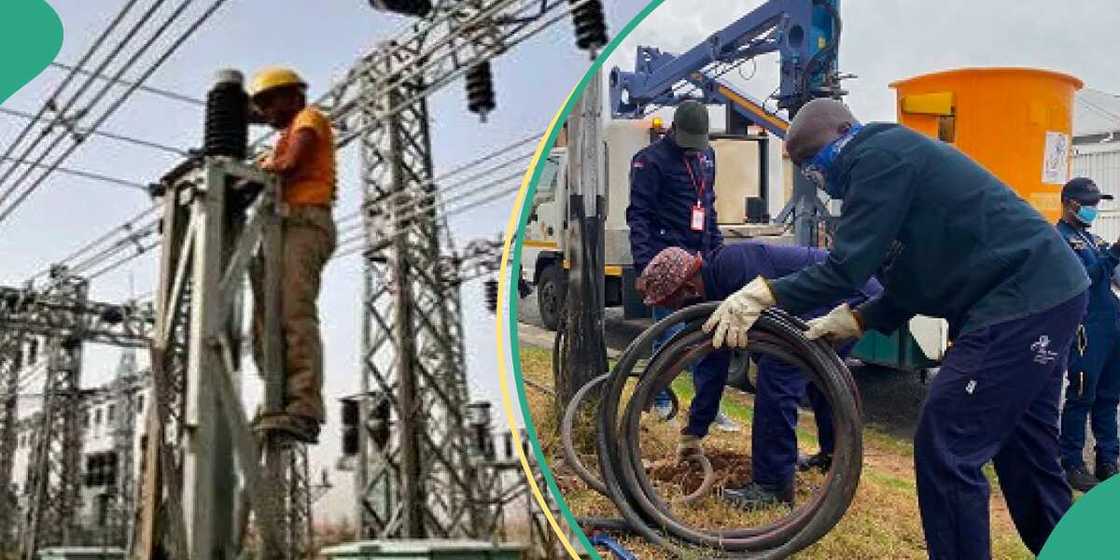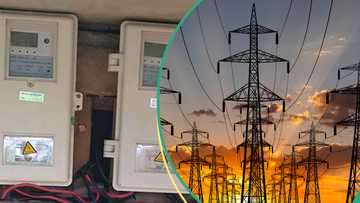More Nigerians, Companies Dump National Grid Amid Tariff Hikes, Poor Power Supply
- Many businesses, academic institutions, and homes are abandoning the unreliable national grid in favour of self-generated power
- Over 400 major organisations, including Flour Mills of Nigeria and MTN, now generate their own electricity, far exceeding the grid's capacity
- The tariff hikes have driven many individuals and businesses to switch to solar power to cut down on soaring electricity bills
Legit.ng journalist Victor Enengedi has over a decade's experience covering Energy, MSMEs, Technology, Banking and the Economy.
As electricity tariffs continue to rise in Nigeria, many businesses, educational institutions, and households are turning away from the unreliable national grid and embracing self-generated power.
This shift, especially toward solar energy, is posing a serious challenge to the stability and profitability of the already struggling national power grid.

Source: UGC
The shift to self-generated power
Data reveals that over 400 major organisations have disconnected from the national grid and are now generating their own electricity.

Read also
FG-owned company idle for decades owes N5.6 billion in electricity debt, risks disconnection
These include notable companies like Flour Mills of Nigeria, MTN Nigeria, and Shell Petroleum, which together produce around 6,500 megawatts, far exceeding the current capacity of the national grid.
Leading academic institutions, such as Obafemi Awolowo University, Ile-Ife; University of Lagos, Akoka; Nnamdi Azikiwe University, Awka; and others have also switched to self-generation to avoid blackouts and unreliable power supply.
Dangote Industries, Nigeria’s largest private electricity producer, generates about 1,500 megawatts, including a 435-megawatt plant at its refinery in Lagos.
The trend is expected to continue, as smaller organisations are increasingly opting for self-sufficiency in power generation.
The Nigerian Electricity Regulatory Commission (NERC) has also granted licenses to new players, including Nile University of Nigeria in Abuja with a capacity of 10 MW, and Ro-Marong Nigeria Limited in Amuwo-Odofin, Lagos, at 4.40 MW, to independently generate and distribute power.
Also, the Nigerian Electricity Regulatory Commission (NERC) awarded an off-grid generation licence to Daybreak Power Solutions Limited for a 2.63 MW capacity, set to begin in the last quarter of 2024.
Tariff hikes drive residential switch to solar
The rise in electricity tariffs, especially for premium residential customers on Bands A and B tariffs, has led many to explore alternative energy sources.
In Lagos, several neighbourhoods, including Ikeja and Agege, have seen a notable increase in the number of homes installing solar panels.
One such resident, Mr. Tunde Salami, shared his experience of switching to solar power due to the steep increase in his electricity bill.
His monthly bill skyrocketed from N20,000 to N82,720 following the tariff hike, prompting him to invest in a solar system worth over N3 million.
Since making the switch, he has saved over N1 million on energy costs and expects to recoup his investment within three years.
Aso Rock's solar initiative faces criticism
In a separate move, President Bola Tinubu has approved a N10 billion budget for a solar power grid aimed at reducing the energy costs for the presidential villa.
This initiative has sparked criticism, with many questioning the need for such a project while ordinary Nigerians struggle with rising energy costs.
However, Mustapha Abdulahi, the Director-General of the Energy Commission of Nigeria, defended the project, highlighting that it aligns with the president’s strategy to diversify energy sources and reduce government costs.
Despite these efforts, the large-scale departure of consumers from the national grid is raising concerns.
Experts warn that this shift could destabilise the power sector further, as the grid struggles with voltage fluctuations, commercial losses, and other operational challenges.
The NERC has acknowledged the impact of heavy users' boycotting the grid, which exacerbates the sector's instability.

Source: UGC
FG promises stable power supply for Nigerians
Meanwhile, Legit.ng reported that Adebayo Adelabu, Nigeria’s Minister of Power, assured citizens that the federal government is committed to providing a reliable and sustainable power supply across the nation.
During a recent visit to the Niger Delta Power Holding Company’s Calabar power plant in Cross River State, Adelabu emphasised the government’s ongoing efforts to enhance the country’s electricity sector.
He stated that the federal government is working collaboratively with relevant stakeholders to drive progress in the power industry, aiming to achieve long-term stability and growth in the nation’s energy supply.
Source: Legit.ng





